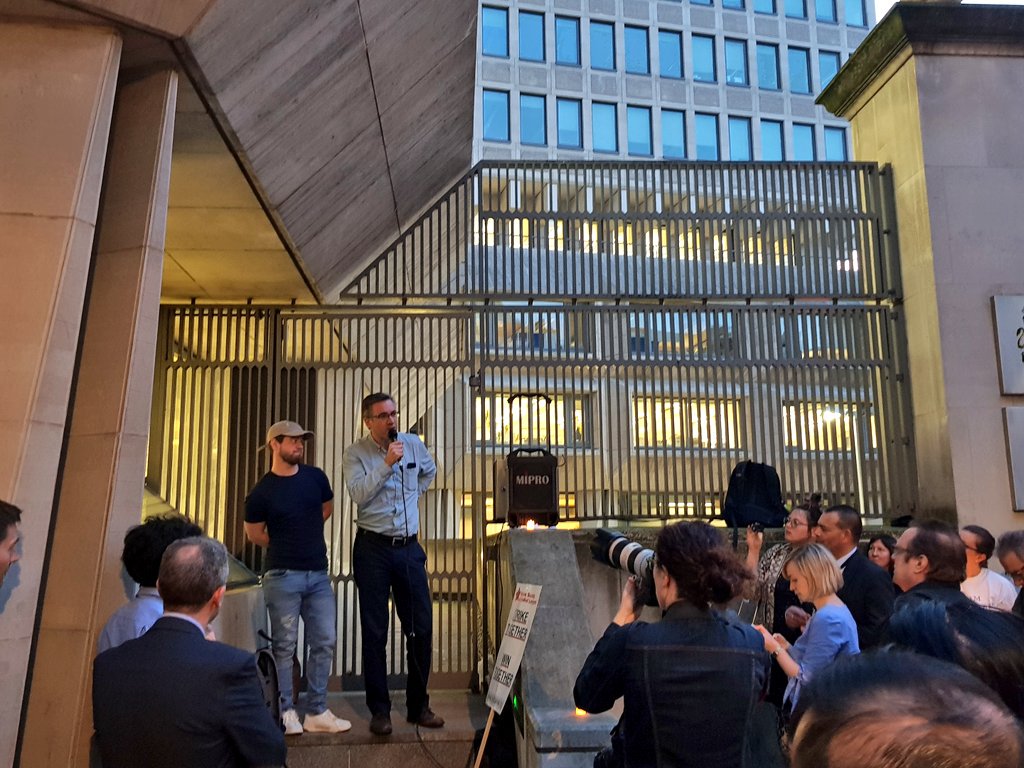Two men who spent a total of 24 years in prison for crimes they did not commit took their legal fight for compensation to Strasburg’s top court this week. Their appeal was heard by 17 judges in the European Court of Human rights‘ Grand Chamber which is convened for exceptional cases to consider a test case challenging the 2014 changes to the law which means that the wrongly convicted now have to prove innocence to be successful in a claim for state support.
The cases of Sam Hallam and Victor Nealon have featured heavily on the Justice Gap – you could read interviews with Sam and Victor. The law change has stopped compensation pay-outs in almost all cases and was recently described as a scandal by Henry Blaxland KC, who represented Hallam at the Court of Appeal, at a meeting of the All-Party Parliamentary Group on Miscarriages of Justice.
Sam spent seven years in prison for the murder of a Essayus Kassahun had his evidence quashed in 2012 and always claimed that he was not at the murder scene. There was no forensic evidence linking him to the killing, no CCTV footage and Thames Valley Police, instructed by the Criminal Cases Review Commission, later interviewed 14 separate witnesses at a crowded murder scene who insisted he was not there including the intended victim of the murder. Nealon has his conviction for attempted rape quashed on the basis of a DNA test pointing to another attacker. He spent 17 years in prison – seven years over tariff because he insisted he was innocent.
Sam Hallam attended this week’s Strasbourg hearing. Hallam’s solicitor, Matt Foot was this week appointed co director of the legal charity APPEAL with the group’s legal director Emma Torr. The current director Emily Bolton is stepping down to focus on casework and campaigns.
At the recent APPG meeting, Henry Blaxland KC, who has acted in many high-profile miscarriage cases including Derek Bentley, James Hanratty, the Bridgewater Four and the M25 Three, told parliamentarians: ‘My aim here is to persuade people that something needs to be done about a scandal: the failure to give proper compensation to victims of miscarriages of justice.’
A press release from the European Court of Human Rights notes that both men applied to the the Ministry of Justice for compensation but were unsuccessful ‘because their cases failed to meet the statutory test for compensation’ under Criminal Justice Act 1988, as amended by the AntiSocial Behaviour, Crime and Policing Act 2014. According to the new scheme, there needs to be a new or newly discovered fact did not show beyond reasonable doubt that they had not committed the offences. The decision letters sent to both applicants stated that nothing in them was ‘intended to undermine, qualify or cast doubt upon [their] conviction’. Both men challenged the MoJ arguing that the statutory test for compensation was incompatible with Article 6’s presumption of innocence because it required them to ‘prove’ their ‘innocence’ in order to be eligible for compensation.
‘How we treat the wrongfully convicted says everything about the sort of society we want to be,’ commented Mark Newby, solicitor for Victor Nealon. ‘It should not be forgotten that the hurdle to even quash a wrongful conviction is set impossibly high and for those who have climbed that mountain it is just wrong to ask them to then scale the same mountain again and prove to the government beyond reasonable doubt that they are innocent. If you weren’t at the scene of a murder or the DNA on a victims clothing wasn’t you but somebody else, what more should have to be said? That is why we must now ask the European Court of Human Rights to intervene. Justice depends on it.’
A freedom of information submission made by the Justice Gap revealed that the Ministry of Justice had received 157 applications in the last two years and only paid out £10,000. To put this into context, in a two-year period from 2007 to 2009 the Ministry of Justice paid out a total of £20.8 million in respect of 19 applications granted and 78 applications received. That number included two ex gratia payments. In 2006, the Labour government axed that scheme to compensate the victims of miscarriages of justice leaving just the statutory scheme. It was costing over £2 million a year to run and benefited about 10 applicants a year.







